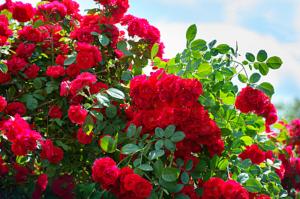Is Tap Water Okay for Cannabis Plants?
When it comes to growing cannabis plants, there are many factors to consider for healthy and abundant growth. One of the biggest concerns is the type of water used to hydrate the plants. A commonly asked question among growers is whether tap water is okay for cannabis plants.
The Basics of Tap Water
Tap water is the water that comes out of your faucet when you turn it on. It is typically treated at a water treatment plant to remove impurities such as bacteria, viruses, and chemicals, making it safe for human consumption. However, many chemicals and additives such as chlorine, fluoride, and trace minerals can still be present in tap water.
The Effects of Tap Water on Cannabis Plants
Using tap water to hydrate cannabis plants can have both positive and negative effects. On the positive side, tap water is readily available and affordable, making it an easy choice for many growers. Additionally, tap water contains essential nutrients such as calcium and magnesium that can benefit the plant's growth.
On the negative side, tap water can also contain harmful chemicals that can accumulate in the soil and negatively impact the plant's health. Chlorine, for example, can kill beneficial soil microbes and damage the plant's root system, leading to stunted growth and reduced yields. High levels of fluoride can also cause damage to the plant's leaves.
Treating Tap Water for Cannabis Plants
If using tap water to hydrate cannabis plants, it is important to treat the water first to remove harmful chemicals and impurities. There are different methods of treating tap water, including:
Boiling: Boiling tap water for 20 minutes can remove chlorine and other chemicals, but it does not remove minerals such as fluoride.
Reverse osmosis: Reverse osmosis systems can remove up to 99% of impurities, including minerals and chemicals. However, these systems can be expensive and may not be practical for small-scale growers.
Carbon filters: Carbon filters can remove chlorine, VOCs, and some chemicals, but they do not remove minerals or fluoride.
Another option is to use a water conditioner specifically designed for cannabis plants. These products remove harmful chemicals and add beneficial nutrients such as calcium and magnesium to the water.
Conclusion
While tap water is convenient and contains essential nutrients for cannabis plants, it can also contain harmful chemicals that can negatively impact the plant's growth. Treating tap water before use is crucial for healthy and abundant growth. Whether you boil the water, use a reverse osmosis system, or use a water conditioner, ensuring the water is free of harmful chemicals is essential for a successful cannabis grow.

 how many times do yo...
how many times do yo... how many planted tre...
how many planted tre... how many pine trees ...
how many pine trees ... how many pecan trees...
how many pecan trees... how many plants comp...
how many plants comp... how many plants can ...
how many plants can ... how many plants and ...
how many plants and ... how many pepper plan...
how many pepper plan...





























